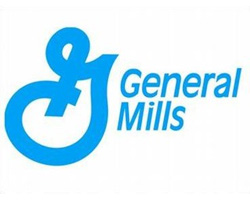 In Toyota Motor Credit v. Director, Div. of Taxation, Docket No. 002021-2010 (Aug. 1, 2014), the New Jersey Tax Court held that Toyota Motor Credit Corporation (“TMCC”) was entitled to increase its tax basis in leased vehicles to the extent of prior year depreciation deductions that hadn’t produced a New Jersey tax benefit.
In Toyota Motor Credit v. Director, Div. of Taxation, Docket No. 002021-2010 (Aug. 1, 2014), the New Jersey Tax Court held that Toyota Motor Credit Corporation (“TMCC”) was entitled to increase its tax basis in leased vehicles to the extent of prior year depreciation deductions that hadn’t produced a New Jersey tax benefit.
TMCC is a California corporation that operates a vehicle leasing business in New Jersey. In a typical lease transaction, an automotive dealer enters into a lease agreement with a customer for a Toyota vehicle. TMCC purchases the leased vehicle from the dealer, the dealer assigns the lease agreement to TMCC, and TMCC collects the lease payments from the customer. At the conclusion of the lease, TMCC sells the vehicle.
During periods prior to 2003, TMCC had depreciation deductions of $2.041 billion in excess of what was needed to reduce TMCC’s entire net income to zero. This gave TMCC a net operating loss of $2.041 billion prior to the 2003 tax year. For federal tax purposes, in 2003 and 2004, TMCC disposed of vehicles and recognized depreciation recovery gain of $484 million and $1.278 billion, respectively. TMCC could not use these losses for New Jersey Corporation Business Tax (“CBT”) purposes in 2003 and 2004 because the CBT prohibited loss carryovers for depreciation in 2003 and 2004.
TMCC initially reported gains for CBT purposes for 2003 and 2004 on the sale of leased vehicles because of its federal adjusted basis. Relying on the New Jersey Tax Court’s holding in Moroney v. Director, Div. of Taxation, 376 N.J. Super. 1 (App. Div. 2005), TMCC amended its 2003 and 2004 CBT return to eliminate gains of $484 million and $1.278 billion, respectively, by increasing its basis in vehicles sold during those two years by the amount of depreciation that was unused for CBT purposes. TMCC argued that disallowing the basis adjustment for CBT purposes imposes a tax on phantom income.
Moroney involved individual taxpayers challenging New Jersey’s Gross Income Tax Act (“GIT”). In Moroney, the taxpayers sold rental properties. Despite taking federal depreciation deductions on the property during the course of ownership, the taxpayers used the properties’ purchase price as the basis for calculating gain under New Jersey law. The taxpayers took this position because the operating expenses exceeded rental income in each year the Moroneys owned the properties and the GIT Act prohibits loss carryforwards. The taxpayers prevailed and TMCC argued that the same principle should apply to its facts under the CBT.
The New Jersey Division of Taxation argued that Moroney did not apply in this case because the CBT Act, unlike the GIT Act, directly ties taxable income in New Jersey to federal taxable income. The GIT Act has “long been recognized as not mirroring federal statutes.”
The Court, instead, focused on the existing provisions of the CBT Act, which paralleled relevant statutes in the GIT Act. Specifically, the Court examined N.J.S.A. 54:10A-4(k) also imposes a tax on “net income,” including “profit gained through a sale . . . of capital assets.” Looking at the legislative intent, the Court found that the CBT Act “expresses the intent to tax only the gain a taxpayer realizes from the sale of property [and] permitting TMCC to employ a Moroney adjustment to the basis of its property would further this statutory objective.”
The Court also found in favor of TMCC regarding income apportionment under New Jersey’s Throw-Out Rule. The Throw-Out Rule, enacted as part of the Business Tax Reform Act of 2002, amended the receipts factor for CBT apportionment. It changed the income tax apportionment sales factor from a ratio of New Jersey receipts to total receipts (NJ receipts/total receipts) to a ratio of New Jersey receipts to taxed receipts (NJ receipts/taxed receipts). The rule excludes receipts from the denominator of the sales factor that would be assigned to a state or foreign country in which the taxpayer is not subject to tax.
The Director removed TMCC’s receipts from the denominator of the receipts factor for Nevada, South Dakota, and Wyoming, because TMCC did not pay tax in those jurisdictions. TMCC had lease receipts in Nevada and paid between $25 million and $56 million in tax from 2003 to 2006. TMCC also had significant receipts in South Dakota and Wyoming. The Director argued that the receipts from each state should be “thrown out” because the tax paid to Nevada was actually a sales tax and TMCC did not pay tax in South Dakota and Wyoming. The Court rejected the Director’s arguments. The Court held that “sufficient constitutional nexus is all that is required” to preclude the removal of TMCC’s receipts from the denominator of the receipts fraction in all three states.
Read the full opinion here: Toyota Motor Credit Corp. v. Director, Div. of Taxation, Docket No. 002021-2010 (Aug. 1, 2014)








